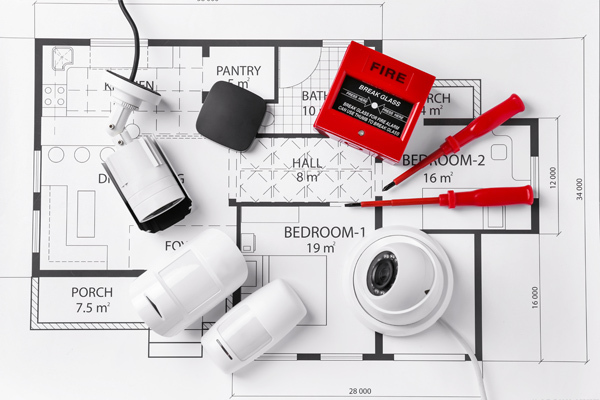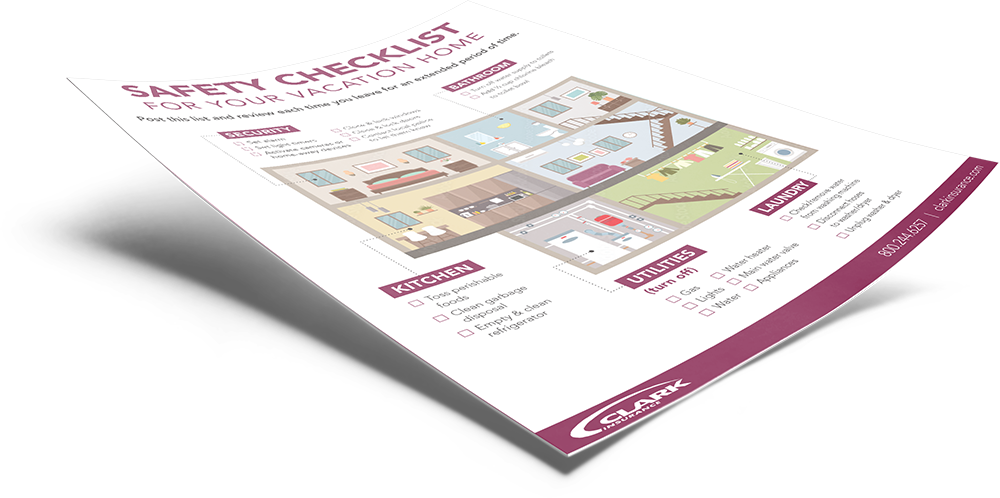03 Aug Don’t Miss These Important Cost-Saving Tips for Your Second Home
Many second homeowners have no idea how common – or how devastating – it can be to experience common malfunctions in a vacation home. Left unattended, a seemingly simple problem, such as a power outage, can lead to tens of thousands of dollars in damage and even destroy a home. Second homeowners often overlook the potential damage that can occur while they’re away, including vandalism, storm damage, or the destruction that common pests, like squirrels, mice, or insects can wreak on an unattended home.
 No doubt, owning a vacation home can be a gratifying investment in your family’s enjoyment. It may also be a smart financial investment. But before the vacation begins, there are important considerations you want to make that will protect your asset as well as help you stay safe, stress free, and even save you money.
No doubt, owning a vacation home can be a gratifying investment in your family’s enjoyment. It may also be a smart financial investment. But before the vacation begins, there are important considerations you want to make that will protect your asset as well as help you stay safe, stress free, and even save you money.
Thankfully, some newer technologies and equipment offerings can take a lot of the pressure off while you’re away. Let’s take a deeper dive into the most common problems that second homeowners experience. Then, we’ll address the investments you can make to prevent losses from happening in your second home, qualify you for credits, and help you save money. After all, it’s a lot easier to protect your asset before the damage occurs, than it is to wait until something goes wrong.
Common Problems Experienced by Second Home Owners
- Pipes freezing in winter is the most common risk to any homeowner whose second home is in New England with a cold winter climate. Freezing pipes can burst open while you’re away, unleashing a gush of unrestrained water that can result in expensive and devastating consequences. Frozen pipes often occur after 2-3 days of intensely cold and windy weather, and they often take place in areas of the house that have less insulation and are more vulnerable to the cold, such as exterior walls, garage apartments, playroom extensions, offices, and other additions. When those pipes burst, it can quickly flood your home and its contents, becoming an expensive and devastating nightmare.
- Vandalism is another vulnerability that increases in a vacation home left unattended. Many vacation homes will see broken windows or forced entries, often leading to a garage area where homeowners keep lawnmowers, weed whackers, tools, gardening, and recreational equipment. These are by far the most common items stolen from a second home, and they can be protected with some appropriate investments.
- Don’t miss out on this complete vacation home maintenance checklist which offers room-to-room advice on how to protect your vacation home while you’re away for the season or just a few weeks. This checklist saves headaches in the short-term and saves potentially money in the long-term.
A good insurance agent has the breadth of experience to anticipate the most common errors and omissions made by second homeowners. A good agent also has the skill and knowledge to make sure you are asking the right questions, as well as helping to guide you through the right tools to protect your vacation home, so you don’t have to worry.
Best Pieces of Equipment and Gear to Save You Money and to Help You Avoid the Loss All Together
- Temperature Alarms – These WiFi powered smart monitors will send alerts to your phone or email the instant an important change in temperature or humidity is triggered in your home. You set the trigger points and alerts.
- Home Security Systems – There are a range of home security systems that offer everything from full service to DIY solutions. A professional monitoring center will call the emergency services for you if something happens any hour of the day, 365 days a year. Self-monitored systems require you to keep tabs yourself. Home Security Systems are helpful for vandalism and burglary. Some packages include sensors and cameras, and gear, such as smart lights and smart locks.
- Smoke and Carbon Monoxide Alarms – Battery powered smoke and carbon monoxide alarms will reliably detect and alert you to the presence of smoke or carbon monoxide in your home. The newer digital models such as Google Nest, will provide alerts and battery status updates to your smartphone in case you aren’t home.
- Flood/Water Leak Detection Systems – These handy systems will send alerts by text and email if there’s a water leak in your home. They often also have an audible alarm. These systems are great for bathrooms, basements, laundry rooms, garages, and kitchens.
- Mold Tests and Detection Systems – If you think your house may be harboring mold, then it’s worth looking into the range of mold tests on the market. Mold tests and detection systems are easy to find online.
- Automatic Heat-Activated Fire Suppression Devices/Fire Extinguishers – These heat activated systems will trigger only when a real fire is present and can trigger automatically when you’re away.
- Deadbolts – Tried and true, the common deadbolt offers great additional security to your home because it is not spring activated and cannot be jimmied or opened with a knife blade.
- Automatic Generators – A permanently installed home backup generator sits outside just like a central air conditioning unit and protects your home automatically while you are away. These often run on natural gas or liquid propane and will deliver power directly to your home’s electrical system, backing up your entire home or just the most important appliances, while the power is out.
- Lightning Rods and Lightning Protection Systems – Lightning strikes the Earth 100 times per second; and one out of every 200 homes is struck by lightning every year. Direct lightning strikes can cause devastating fire damage or a total loss to your vacation home. Most losses can be minimized, if not eliminated, by hiring a professional service to install proper lightning protection systems.
Bottom Line
That second vacation home is designed to be your happy place, a destination that’s far from the hustle-and-bustle and obligations of daily life, a place where you can relax. But taking that second home for granted and leaving it vulnerable is a common and avoidable mistake. The best way to protect your second home is to start by contacting your local insurance agent. Local insurance agents know the lay of the land and they can protect you from the most common risk factors in your area.




